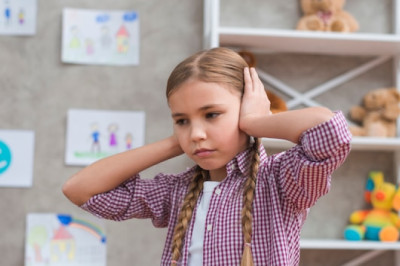Attention-Deficit/Hyperactivity Disorder (ADHD) is a neurodevelopmental disorder that affects children and can continue into adulthood. It is characterized by patterns of inattention, hyperactivity, and impulsivity that are more severe, frequent, or interfere more with daily functioning than typically observed in individuals at a comparable level of development. Recognizing the signs of ADHD early can lead to timely intervention, which is crucial for managing symptoms and improving quality of life. Here are six key indicators to help parents and guardians identify if their child might have ADHD.
Difficulty Sustaining Attention
Children with ADHD often struggle to keep their focus on tasks or play activities. This isn't just about occasionally drifting off during a long lecture or getting bored with a repetitive task; it's a consistent pattern of difficulty maintaining attention even on short, engaging activities. They may seem to 'tune out' when spoken to directly, not because they aren't interested, but because they find it hard to maintain focus. This can be particularly noticeable in settings where focused attention is required, such as in the classroom, during homework time, or while following instructions.
Hyperactivity and Restlessness
Hyperactivity in children with ADHD goes beyond typical childhood energy. It's a pervasive restlessness that seems to drive them constantly. You might notice your child is always 'on the go,' as if driven by a motor, unable to sit still during dinner, or has difficulty playing quietly. In school, they may fidget, tap, or squirm in their seats. This constant movement is not a choice but a part of their condition, making calm, quiet activities challenging to engage in.
Impulsivity
Impulsivity in children with ADHD manifests as actions taken without thought for the consequences. This could mean blurting out answers in class without being called upon, interrupting others frequently, or having difficulty waiting their turn in games or group situations. Such behaviors are not due to defiance or lack of understanding of social norms but rather an innate difficulty controlling impulses. This aspect of ADHD can create challenges in social interactions and learning environments.
Difficulty Following Instructions
A common sign of ADHD is the struggle to follow through on instructions, regardless of the child's desire to comply. This isn't about disobedience but rather the difficulty in keeping multiple steps in mind or staying on task long enough to complete them. For example, a child may start an assignment with enthusiasm but quickly become sidetracked, leaving tasks unfinished. This can often be mistaken for carelessness or lack of effort, but it's actually a core challenge of ADHD.
Emotional Turbulence
Children with ADHD often experience intense emotions and may have difficulty regulating their feelings. This can result in sudden outbursts of anger or frustration over seemingly minor issues. Their emotional responses can appear disproportionate to the situation at hand, making it difficult for them to navigate social situations or cope with changes and setbacks. Understanding that these reactions are part of their condition, rather than intentional overreactions, is crucial for supportive parenting and teaching strategies.
Problems with Organization
Organizational skills are often a significant challenge for children with ADHD. They may have trouble keeping track of personal items, managing their time effectively, or planning and completing projects. This can manifest in forgotten homework, lost belongings, or difficulty adhering to schedules. These organizational difficulties are not due to a lack of intelligence or capability but stem from the executive function impairments that are a hallmark of ADHD. Providing structured routines and clear, concise instructions can help mitigate some of these challenges.











Comments
0 comment